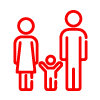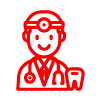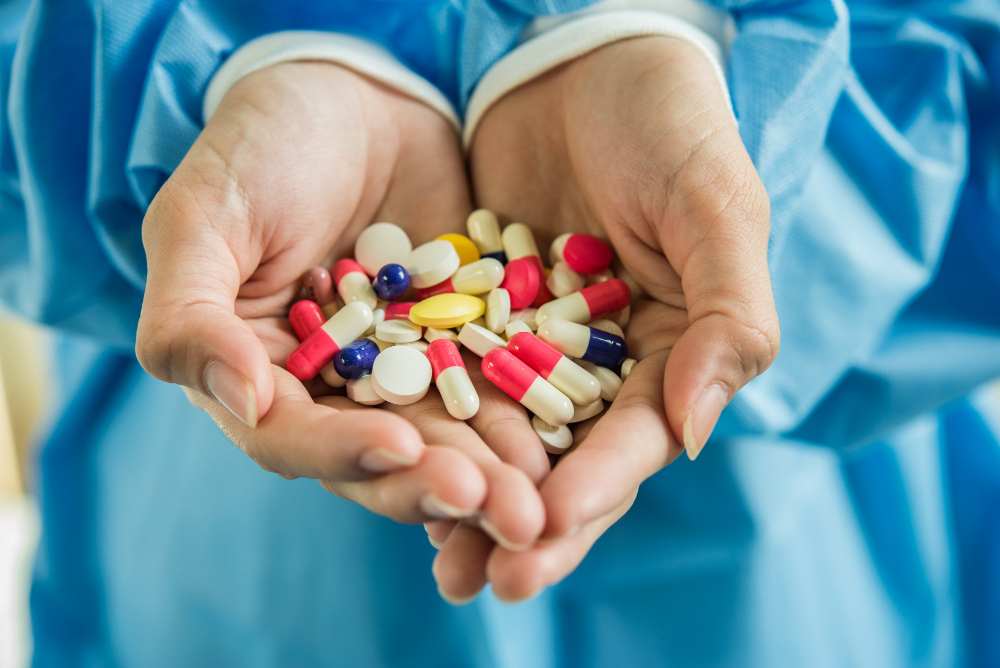After a tooth extraction, your dentist might recommend antibiotics to protect against infection and ensure smooth recovery. While it can be tempting to skip medication, especially if you're wary of side effects, avoiding antibiotics when prescribed can lead to complications like infections, delayed healing, and unnecessary pain. Let’s explore why antibiotics are important, the risks of skipping them, and how to recognize the signs of infection.
Why Are Antibiotics Prescribed After Tooth Extraction?
Antibiotics aren’t a standard prescription for every tooth extraction but are often recommended in specific situations. For example, patients with underlying health conditions, complex extractions, or weakened immune systems may need antibiotics to prevent complications.
Preventing Infection
The primary purpose of antibiotics is to reduce the risk of infection at the extraction site. After a tooth is removed, the open socket becomes vulnerable to bacteria, which can cause painful complications if left unchecked.
Reducing Pain and Swelling
While antibiotics are not pain relievers, they prevent the inflammation caused by infection. This helps minimize swelling and pain, allowing for a smoother recovery process.
The Risks of Skipping Antibiotics
Failing to take antibiotics when prescribed can lead to serious consequences. Here are some risks you should consider:
Infections and Abscesses
Skipping antibiotics increases the likelihood of an infection at the extraction site. This can lead to abscesses, which are painful pockets of pus that require additional treatment. In severe cases, infections can spread to other areas of the body, posing significant health risks.
Delayed Healing
Infections disrupt your body’s natural healing process, prolonging recovery and increasing discomfort. Instead of the extraction site gradually closing, it may remain swollen and tender, delaying your return to normal activities.
Complications Like Dry Socket
While skipping antibiotics doesn’t directly cause dry socket (a condition where the protective blood clot at the extraction site is lost), infection or bacterial buildup can increase the likelihood of developing this painful complication.
Signs of Infection After Tooth Extraction
Knowing what to watch for can help you catch an infection early and prevent more severe issues. Common signs include:
- Pain and Swelling: Normal discomfort should improve over time. If pain intensifies or becomes throbbing, it could indicate an infection.
- Pus or Drainage: Yellow or white discharge with a foul smell or taste is a clear sign of infection.
- Fever: A fever often signals your body is fighting off an infection and should prompt a call to your dentist.
What to Do If You Have an Infection
If you suspect an infection, don’t wait to seek treatment. Contact your dentist immediately. They’ll assess the area and likely prescribe antibiotics or other treatments. Follow the full course of antibiotics as prescribed, even if you start feeling better. Stopping early can allow bacteria to survive, leading to relapse or harder-to-treat infections.
During recovery, follow your dentist’s aftercare instructions carefully. Avoid smoking, drinking through straws, or anything that could disturb the healing site. Keep the area clean and practice good oral hygiene to support faster healing.
The Importance of Antibiotics in Recovery
Antibiotics play a critical role in preventing infections and ensuring a smoother recovery after tooth extraction. Skipping them when recommended could lead to complications that make the process longer and more painful. If you notice any unusual symptoms during recovery, such as severe pain, swelling, or discharge, contact your dentist immediately for guidance.
Your Recovery, Simplified
At Monarch Dentistry, we prioritize your oral health and recovery. If you’re experiencing complications after a tooth extraction or have concerns about antibiotics, our team is here to help. Don’t hesitate to reach out for expert care and advice—your healthy smile is our top priority!
FAQs
Is it necessary to take antibiotics after a tooth extraction?
Not always, but they’re often recommended for high-risk patients or complex extractions. Follow your dentist’s guidance.
What happens if I skip antibiotics after an extraction?
Skipping antibiotics increases the risk of infection, delayed healing, and complications like abscesses.
How do I know if I have an infection after a tooth extraction?
Signs of infection include severe pain, swelling, pus, and fever. Contact your dentist immediately if you notice these symptoms.
How long should I take antibiotics after a tooth extraction?
Follow your dentist’s prescription exactly, typically completing the full course even if you feel better before finishing.
Schedule Your Care with Monarch Dentistry
Don’t let concerns about infection slow your recovery. Contact Monarch Dentistry today for expert guidance and compassionate care to keep your smile healthy and your healing on track!









